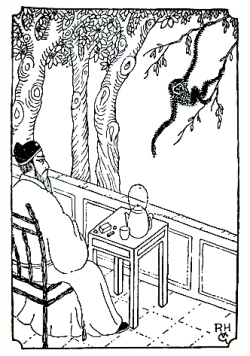Facebook streams a variety of questionnaires that purport to pinpoint our personalities. They are goofy and fun, particularly when friends also take the test. Of course, the results should be taken with a healthy dose of skepticism. However, occasionally we experience that old shock of recognition—perhaps only because the designation flatters us!
I took the iPersonic Personality Test and I am a Groundbreaking Thinker. What is your type?
The Groundbreaking Thinker
In their work, Groundbreaking Thinkers highly rate challenges and diversified tasks. They cannot stand routine and too detailed work. They love to astound others with bold ideas for an original, new project and then leave it up to the others to implement them. Hierarchies, rules and regulations arouse their opposition and they love outsmarting the system. It is vital to them that they enjoy their work; if this is the case, they quickly become pure workaholics. Their creativity best takes effect when they work independently; but they are very good at motivating others and infecting them with their optimistic nature. Conceptual or advisory activities appeal especially to Groundbreaking Thinkers. It can happen that some people feel somewhat duped by their flexible, spontaneous nature.
Their sociability and enterprise ensure that Groundbreaking Thinkers always have a large circle of friends and acquaintances in which activity plays an important role. As they are mostly in a good mood, they are popular and very welcome guests. Grumbling and peevishness are unknown to them. However, they do tend to be a little erratic and unstable when it comes to obligations and this makes them appear to be unreliable to some.
Groundbreaking Thinkers are very critical and demanding when it comes to picking a partner because they look for the ideal relationship and have a very concrete picture of this ideal relationship. Mutual aims in life are very important to them. They do not like compromising and would rather remain alone. For the partner, it is often a challenge to have a long-term relationship with a Groundbreaking Thinker. Groundbreaking Thinkers need a lot of space and diversity or otherwise they become bored and feel cramped.
Types who are rather more traditionalistic often have problems with the willingness of Groundbreaking Thinkers to take risks and their often crazy, spontaneous actions. However, if one can summon up sufficient flexibility and tolerance for them, one will never be bored in their presence and will always have a loyal and faithful partner.
As a Groundbreaking Thinker, you are one of the extroverted personality types. Dealing with others, communication, discussions, and a little action are your life’s blood – and some of your strengths. You are very articulate and love variety personally as well professionally. New tasks, new projects, new people, fascinate you because you are always interested to increase your wealth of experience.
Consequently, you have no problem run with the hare and hunt with the hounds; juggling parallel tasks to be accomplished electrifies you, and you are an accomplished improviser. Your enthusiasm carries others along and enables you to create positive impulses in your team. Mountains of paperwork, endless e-mail correspondences, and solitary work tire you quickly, and bore and frustrate you. The appreciation of your work by others is more important for you than for the introverted Thinker types. You measure your own professional value by the admiring glances of your colleagues and superiors.
The psychologist Keirsey once described the Groundbreaking Thinker as the “soul of the company,” and that can be just as easily applied to an employee position, as to an independent chief of a company. Since risk represents less of a threat than excitement, freelance or self-employment are well suited to you.
However, you must take care to have collaborating staff around you, or that you are able to work closely with other teams in order to satisfy your contact and communication needs. You are naturally suited for leadership positions because there you have the ultimate freedom making your decisions and choosing your tasks.As a Groundbreaking Thinker, you are one of the extroverted personality types. Dealing with others, communication, discussions, and a little action are your life’s blood – and some of your strengths. You are very articulate and love variety personally as well professionally. New tasks, new projects, new people, fascinate you because you are always interested to increase your wealth of experience.


